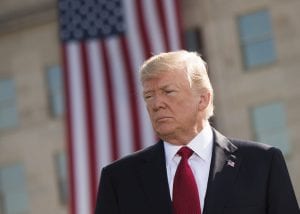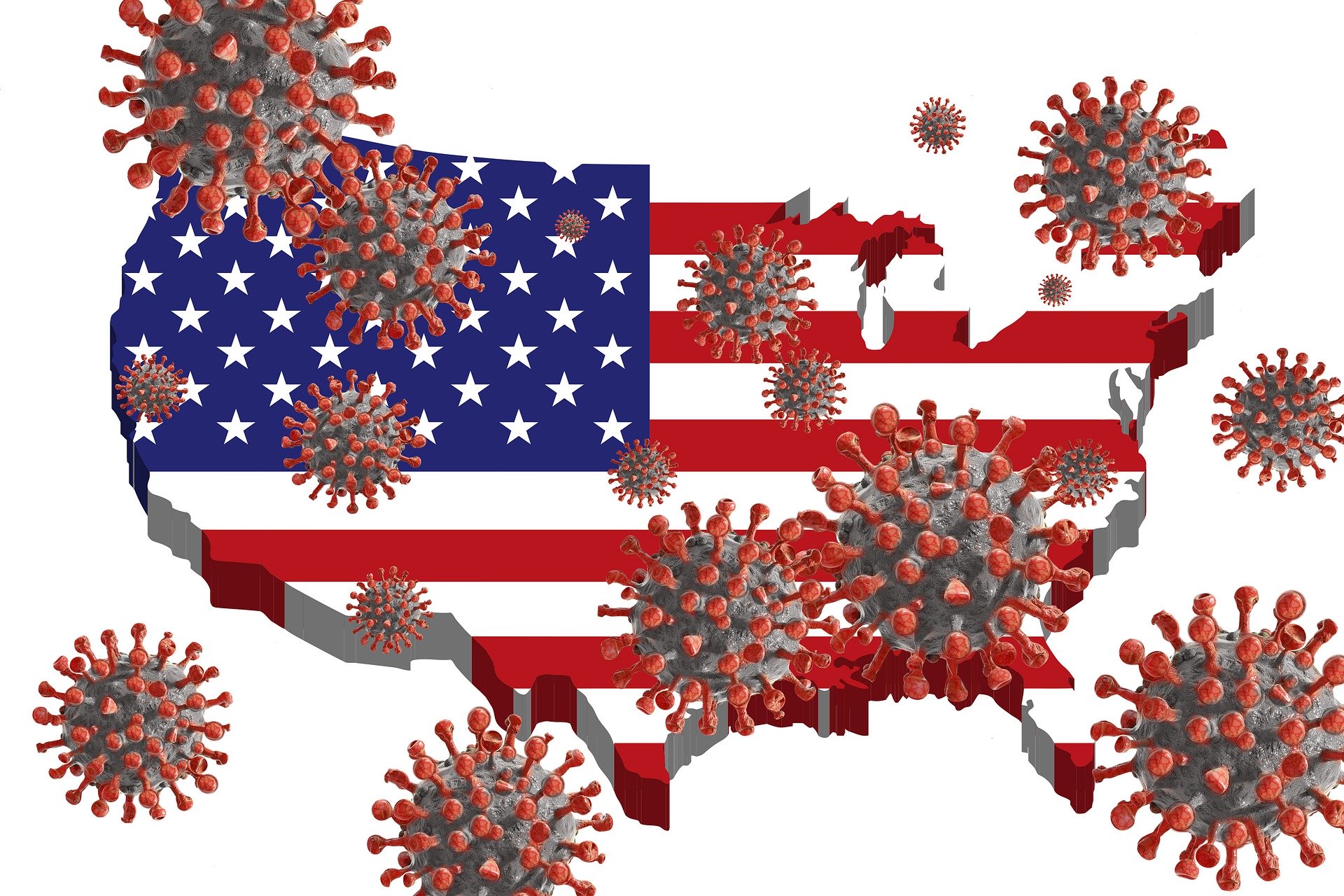It’s rather telling that President Trump had to invoke a 70-year-old law, originally enacted to strengthen U.S. defenses at the height of the Cold War, in order to issue an executive order allowing for the prosecution of bad faith sellers of medical goods and supplies.
As the U.S. continues to contend with the worst pandemic in over a century, predatory sellers of essential medical equipment have been capitalizing on the crisis by hoarding their supplies and dramatically increasing their prices. Without a federal price gouging statute in place to police egregious pricing practices, sellers of emergency supplies will continue to feel emboldened and sell with impunity.
Currently, the U.S. is wholly reliant on states enforcing their own anti-price gouging laws, as indicated by the National Conference of State Legislators. There are currently 36 states and the District of Columbia that have laws punishing price gouging during declared emergencies or natural disasters. However, the statutes vary significantly between states and fail to provide any meaningful definition of price gouging or a list of products that are subject to the anti-gouging rules.
It’s clear that swift action should be taken at the federal level to bring some uniformity, and advance the country’s efforts to robustly protect its citizens from nefarious sellers of emergency goods. Whilst the worst of the supply shortages appear to have abated, epidemiologists have accurately predicted a winter spike in COVID-19 cases, and new expected disruptions in supply chains.
A National Defense Statute Used to Fight COVID-Related Price Gouging
With no federal price gouging in place, President Donald Trump had no choice but to invoke a 70-year-old defense statute, the Defense Protection Act (DPA) of 1950, in order to prosecute bad actors in the essential goods and services industry. The DPA authorizes the president to designate materials as necessary to promote the national defense. It also allows the president to prosecute individuals and businesses who accumulate those materials beyond their reasonable needs, and engage in selling practices which exceed prevailing market prices. Willful violations of this statute can be punished by up to $10,000 in fines and/or up to one year in prison.
In March, President Trump signed Executive Order 13910, which delegated to the secretary of Health and Human Services (HHS) the authority to designate certain items as protected under the DPA. A few days later, HHS Secretary Alex Azar released a list of medical items that would be designated as protected under the DPA, including masks, respirators, certain types of sanitizing devices, and personal protective equipment. A Department of Justice task force was then formed to investigate and prosecute hoarding and price gouging activity in relation to COVID-19.

While President Trump’s executive order may have helped ease some concerns, an announcement by the DOJ of the prosecution of fewer than a dozen price gouging offenders really invalidates the notion that enforcement under this order is a priority for the department.
Further, many legal observers have also noted that federal action under the DPA raises serious due process concerns for sellers because the statute lacks guidance as to what constitutes an appropriate markup for goods in short supply and what constitutes price gouging. If a seller is subject to criminal prosecution under the statute, a court may apply the doctrine of “void for vagueness” under the U.S. Constitution’s Due Process Clause, should the court conclude that the seller was unable to determine what constituted price gouging.
The Federal Trade Commission Fails to Take Action Against Price Gouging
The Federal Trade Commission (FTC) Act bars unfair or deceptive trade practices affecting commerce and gives the FTC the power to investigate and undertake enforcement actions against businesses and individuals engaged in such practices. In March, FTC Chairman Joseph Simmons announced that the FTC is working to protect consumers during the pandemic.
And indeed, the FTC has been somewhat active in protecting consumers during the pandemic, but its actions have been focused predominantly on deceptive trade practices rather than investigating price gouging. For example, in July the FTC took action against a marketer that falsely promised next-day shipping of personal protective equipment, rather than the excessive prices being charged.
In fact, the FTC’s shortcomings to take any meaningful action to curb price gouging activities has drawn the ire of some in Congress. In late March, Democratic members of both houses submitted letters urging the FTC to take greater action to shut price gouging down.
State Anti-Gouging Statutes Only Provide Patchwork Protections
While most states have statutes barring excessive price hikes during declared emergencies, the definition of what constitutes “price gouging” varies from state to state. Some of the statutes define price gouging as “excessively high” prices during a state or national emergency, while others bar “unconscionable” price increases during an emergency. Additionally, a few states prosecute price gouging using their fair trade statutes, which as noted earlier, only serves to muddy the waters further.
Even in states which have adopted the “excessively high” price standard for determining whether a seller is engaged in price gouging, there is no legal standard that has been adopted. For example, Florida compares a product’s price during an emergency to its average price during the 30 days preceding the declaration of an emergency. Pennsylvania looks at the average price seven days before an emergency is declared. Both New York and California base their determinations of excessive pricing immediately before the emergency is declared. And in the event of prosecution, state law punishments vary by state and can include large fines, jail time, or even public reprimands. Thus, reliance on state price gouging statutes illustrates the arbitrary nature of standards enforced between them, and invites forum shopping from potential offenders.
Some Victims of Price Gouging Filing Class Action Lawsuits
Some legal experts have noted that there have been a number of class action lawsuits filed against sellers in response to price spikes for urgent medical and consumer products during the early days of the pandemic. Many of these class action claims were based on price gouging state statutes, some of which contain provisions allowing for private actions against violators. The class action lawsuits have claimed that in addition to price gouging, vendors violated other laws, including those infringing on consumer protection rights, unjust enrichment, and unconscionable sales practices.
Therefore, while class action lawsuits may provide some recourse to consumers who wish to punish culpable vendors, there are no precedents to follow in this arena. Even in states that allow private actions for price gouging, the laws have rarely been invoked in class actions and many courts will be addressing these issues for the very first time. In truth, because many of these actions will be based on novel legal theories, there is really no way of knowing how courts will ultimately rule on them.
Additional Federal Action Imminent to Fight Price Gouging
It’s rather telling that President Trump had to invoke a 70-year-old law, originally enacted to strengthen U.S. defenses at the height of the Cold War, in order to issue an executive order allowing for the prosecution of bad faith sellers of medical goods and supplies. The responsibility now lies with any willing member of Congress, who is interested in effectuating change, to propose a House bill which lays out a singular framework for price gouging during a declared emergency, and how offenders will be punished or reprimanded. In addition to protecting consumers, the legislation would offer some much needed federal guidance to sellers (and those claiming ignorance) on the legal threshold for marking up goods that are in short supply during a national emergency.


Join the conversation!